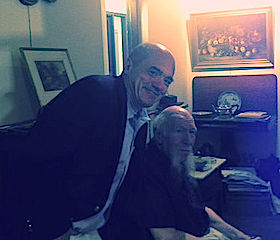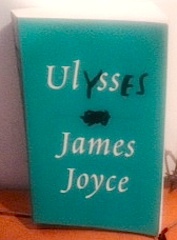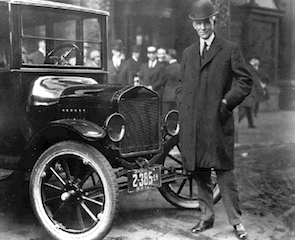I stumbled upon a hidden treasure recently, right in my backyard of Princeton, New Jersey. The Gilded Lion is a wonderful antique store, located at 24 Chambers Street, where it has stood since 1989.
The Gilded Lion is owned and operated by Leo Arons, one of America's top and most-knowledgeable rare book and antique connoisseurs who has been in the business for since the 1960s. A former research scientist for RCA, Leo is passionate about his work collecting, consulting, and appraising in the antique world. Leo brings academic excellence and appreciation of the details to his work in the Gilded Lion, and that unique combination draws customers worldwide.
When I entered the Lion's walls for the first time, I was thrilled to explore the magic of the store's two floors. It is something straight out of King Arthur's Court, with hundreds of unique items lining its walls. It is small but energetic.
After making friends with Leo, he recounted his life and career to me. A Cornell University graduate, he has lived in Princeton most of his life. At 93 years old, he appears straight out of central casting, with his beautiful white beard a Merlin of books and antique treasures. I told him that my hobby is to collect rare books--to engulf myself in literary gems.
He smiled and brought out a copy of Hobbes' Leviathan, even with its broken cover it is still one of the great books ever written in political theory. I bought it on the spot.
Originally published in the 1600s, Leviathan is a monument to political theory that continues to shape the way we think about man, society and the role of the individual, reason versus intuition, and politics as a whole. I encourage all of my readers to take a look at this masterpiece here.
Then he showed me a piece from his prime collection: a 1922 first edition copy of Ulysses.
My heart skipped a beat. I didn't have enough money to buy so I optioned it. Knowing that your biggest investments yield the greatest results, I remain motivated to share Ulysses with its next owner.
Leo offered some great advice for young collectors on how to succeed in the business.
1. Buy things that you love and that you can live with for decades. You might not be able to sell right away, so you want something with an inherent value that you can love, appreciate, and eventually find the right buyer for. Just like Warren Buffet said,
There comes a time when you ought to start doing what you want. Take a job that you love. You will jump out of bed in the morning. I think you are out of your mind if you keep taking jobs that you don't like because you think it will look good on your resume. Isn't that a little like saving up sex for your old age?
2. You make money on the things you have to stretch to buy. If my column has taught readers anything for the hundreds of brilliant entrepreneurs profiled here, I hope it is this: innovation is borne of risk.
Still don't believe me? Look at Steve Jobs and Steve Wozniak--they're calculated risks to create Apple continues to pay off today. Or Henry Ford, who sold his Model Ts below cost to create a buying frenzy--something that helped him revolutionize production by creating a huge demand.
Henry and the Model T (Source)
3. Keep good records. As many successful entrepreneurs and NFTE students alike have claimed, the importance of basic bookkeeping cannot be underestimated. Without good records, you cannot perform basic analytical functions needed to grow your business, complete the most basic government and tax filings, and its often the basic difference between serving your clients and not.
Brianna Cregle, a student in Rutgers University Masters of Library and Information Science program, with local legend Leo Arons.
4. Always treat your customers with respect and integrity. As any consumer will tell you, sometimes customer service is worth a million dollars. Its true that your customers can make or break your business, because without them there is no business. And, you never know the significance of a customer interaction until after its over. Take for example, a story told by one serial entrepreneur in Inc. magazine: his hands-on approach to one midnight caller led his startup directly to the huge account and capital infusion they needed to grow.
5. Learn the history of the antique or rare book that you are buying. For this one, Leo gave me a fascinating example. He has a letter from King Henry VIII's financial mastermind to the spymaster in the English court. In it, he refuses to refund the expenses claimed by the spymaster on his early expense report. It is a priceless letter that holds many insights in this time in England and espionages then.
One such example from Henry's court (Source)
6. And lastly, get your location right. Like labyrinth books, Leo's store benefits greatly from being in a wonderful place like Princeton when people greatly value learning.
Leo Arons is one of the most widely-read and insightful leaders in this business and I am honored to have the opportunity to impart some of his wisdom here.






